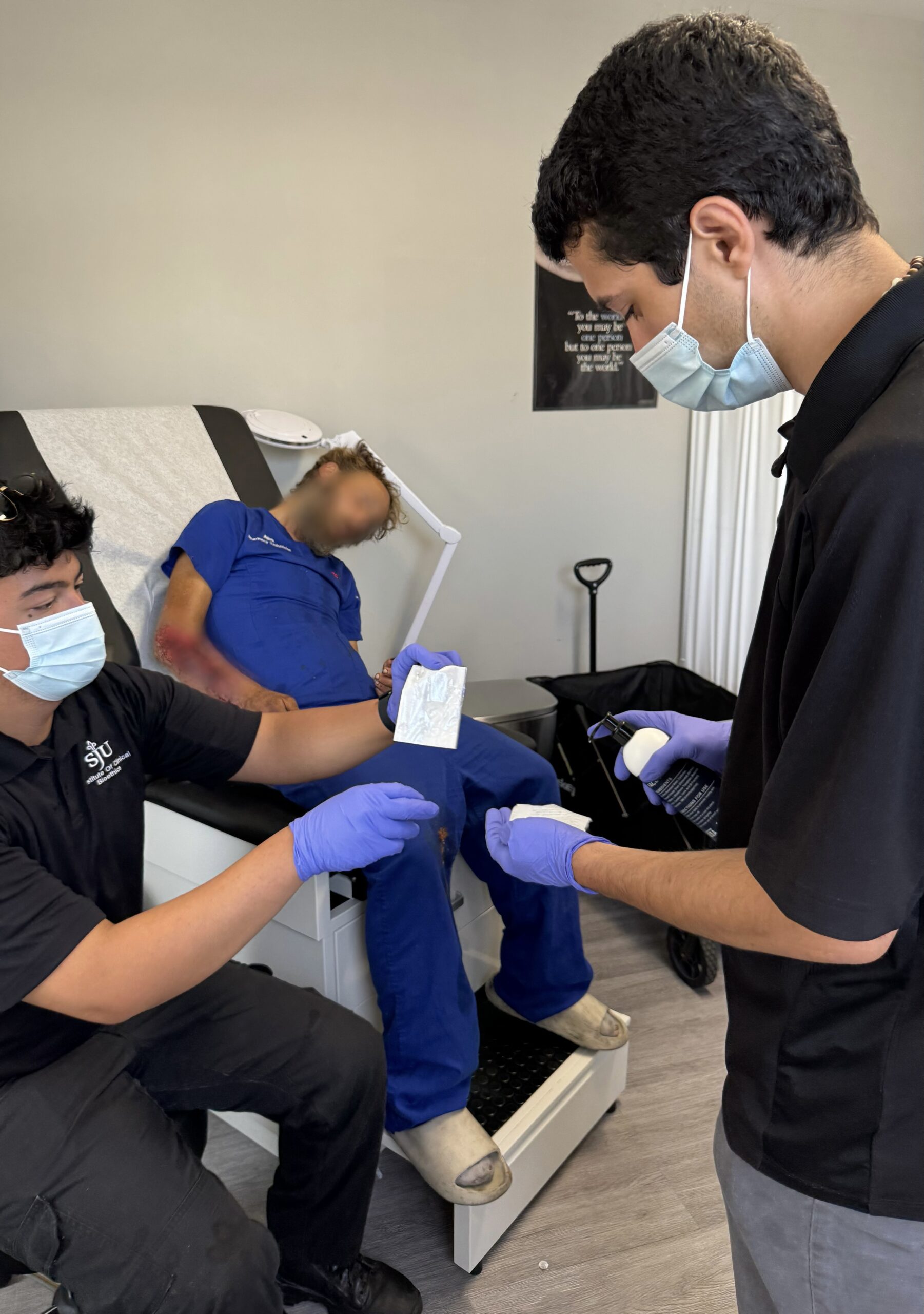Ean Hudak (Biomedical Sciences, ’26)
In EMS, after a serious call, we often find ourselves reflecting on the patients who die in our care. A single day in the field can shift quickly—from treating a woman with a fracture to responding to a dead-on-arrival—reminding us that we never truly know what awaits, only that we must be prepared to face it head on. The word ‘dead’ is rarely spoken, avoided because few want to confront it; instead, attention often centres on the successful cases. But July 27th changed that for me—it reshaped how I view mental health and my career.
Sunday morning was humid, and the radio was unusually quiet for that hour. At 10:07, the sharp tone broke the silence, dispatching us to a park for a possible dead-on-arrival. My crew quickly climbed into the truck and reviewed the dispatch notes: ‘Possible head injury, 35-year-old male, located on path, police on scene.’ When we arrived, we found the patient lying face up on a wooden path beside a pond.
The police escorted us to him, as we got closer it became apparent that he was visibly dead. The sound of the bubbling pond and alternative music from a phone only grew louder as we got closer. His finger tips were blue and cold to the touch, flies were landing on his face, and he had a pool of blood surrounding his head with his brain and skull exposed. No classroom or experience could have prepared me for the scene I saw. All I could do was pronounce him dead at the scene alongside the medical examiner’s office. There was no treatment to provide, no care to offer—only the formal documentation that J, a 33-year-old man, had died on July 27th by suicide from a gunshot wound.
As we waited for the medical examiner’s office to complete the collection of the body, I couldn’t help but notice the peaceful setting J had chosen to end his life. The park was quiet, the pond was tucked in the woods with some geese, and no trace of life other than nature surrounding him. For the first time, I had to write in my report that a patient had died, and I even hesitated before putting it into words. Yet, after multiple ethics classes, I knew it was necessary. J left behind family and friends. Perhaps a child, a partner, or even a dog. He may have battled depression his entire life, or he may have hidden it well from those around him. So much about his story will remain unknown.
In the coming days, a family member or friend will have to identify him in his cold, rigid state. I hope they find the courage to look past the manner of his death and remember the fullness of his life—the highs as well as the lows. He leaves behind people who knew and loved him for who he was. To me, he will forever remain 33 years old, and he will forever stay with me throughout my career. Though we never spoke, he indirectly taught me something profound: always check in on others, no matter how persistent it may seem, because you might be their only lifeline. We had no relation—just two strangers who crossed paths under tragic circumstances.
As a society we do not talk about mental health unless it directly impacts us. Everyone turns when you try to discuss it, probably because people get uncomfortable. We need to begin addressing psychological disorders more openly because that is the way we can effectively treat patients. We are the next generation of clinicians, and it is important we continuously evolve to growing needs so patients don’t feel alienated or alone. My roommate reminded me never to let go of empathy—it is an essential part of being human and will ultimately help me become a better clinician. I am grateful for the Fellows for establishing the Mental Health Station at all Health Promoters because this basic screening will help prevent patients from slipping through the cracks of health care and gain access to routine psychological services.
Rest peacefully J.
If you or someone are a danger to yourself or others call 911.
If you or someone is struggling with a psychological disorder, the Institute is here for help:
Suicide Hotline: https://988lifeline.org/
Stress Management: https://www.nami.org/

